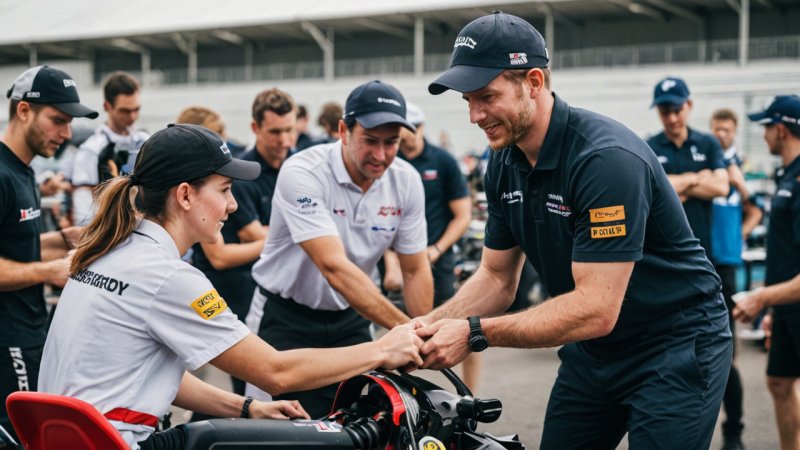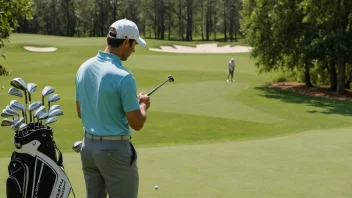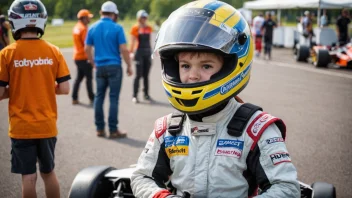In the high-stakes world of motorsports, the mental and physical demands on athletes can be enormous. To gain insight into how to build a robust support system for these athletes, we hypothetically spoke with Dr. Emily Carter, a renowned sports psychologist specializing in motorsports performance. Dr. Carter has worked with various racing teams and individual drivers, helping them navigate the pressures of competition while enhancing their performance through mental resilience and strategic support structures.
Understanding the Unique Pressures of Motorsport
Interviewer: Dr. Carter, can you elaborate on the unique pressures faced by motorsport athletes compared to other sports?
Dr. Carter: Absolutely. Motorsport athletes experience a unique combination of physical and psychological challenges. The speed, precision, and danger involved in racing can create intense pressure. They not only have to focus on their driving skills but must also manage the expectations of their teams, sponsors, and fans. The potential for injury or even fatal accidents adds another layer of stress that is often not as prevalent in other sports.
The Role of a Support System
Interviewer: What role does a support system play in helping these athletes cope with such pressures?
Dr. Carter: A support system is crucial for motorsport athletes. It provides emotional backing, helps manage stress, and keeps them motivated. This system typically includes family, friends, coaches, team members, and mental health professionals. Each of these individuals contributes to the athlete's overall well-being, allowing them to focus on their performance without being weighed down by external pressures.
Key Components of a Strong Support System
Interviewer: What are the key components that make up a strong support system for motorsport athletes?
Dr. Carter: There are several essential components:
- Emotional Support: Family and friends play a vital role in providing encouragement and understanding.
- Professional Guidance: Coaches and trainers help athletes fine-tune their skills and strategies, while sports psychologists can address mental barriers.
- Peer Support: Fellow athletes can share experiences and coping strategies, creating a sense of camaraderie.
- Health and Wellness Resources: Access to nutritionists and physiotherapists is important for maintaining physical health.
Creating a Collaborative Environment
Interviewer: How can teams foster a collaborative environment that enhances the support system?
Dr. Carter: Teams can encourage open communication and collaboration by creating a culture of trust and respect. Regular team-building activities can strengthen relationships. Additionally, integrating mental health resources into the team structure—like having a dedicated sports psychologist—can normalize seeking help and making mental health a priority.
Balancing Performance and Well-being
Interviewer: How can athletes balance the demands of high performance while maintaining their well-being?
Dr. Carter: It's essential for athletes to set realistic goals and remain adaptable. They should prioritize their mental health by incorporating relaxation techniques, mindfulness practices, and sufficient rest into their training regimen. Regular check-ins with their support system can help them stay grounded and focused on both performance and personal well-being.
Encouraging Open Conversations
Interviewer: What steps can be taken to encourage athletes to speak openly about their mental health?
Dr. Carter: Teams should create a safe space for dialogue around mental health. This might involve hosting workshops where athletes can learn about mental health issues and share their experiences. It’s also important to have leaders within the team model openness about mental health, demonstrating that it’s acceptable to seek help.
Conclusion
In the world of motorsports, building a strong support system is essential for athletes to thrive both on and off the track. As Dr. Emily Carter highlights, emotional support, professional guidance, peer camaraderie, and health resources create a holistic network that allows athletes to face challenges head-on. By fostering open communication, encouraging collaboration, and prioritizing mental health, motorsport teams can ensure their athletes not only perform at their best but also maintain a healthy balance in their lives.






